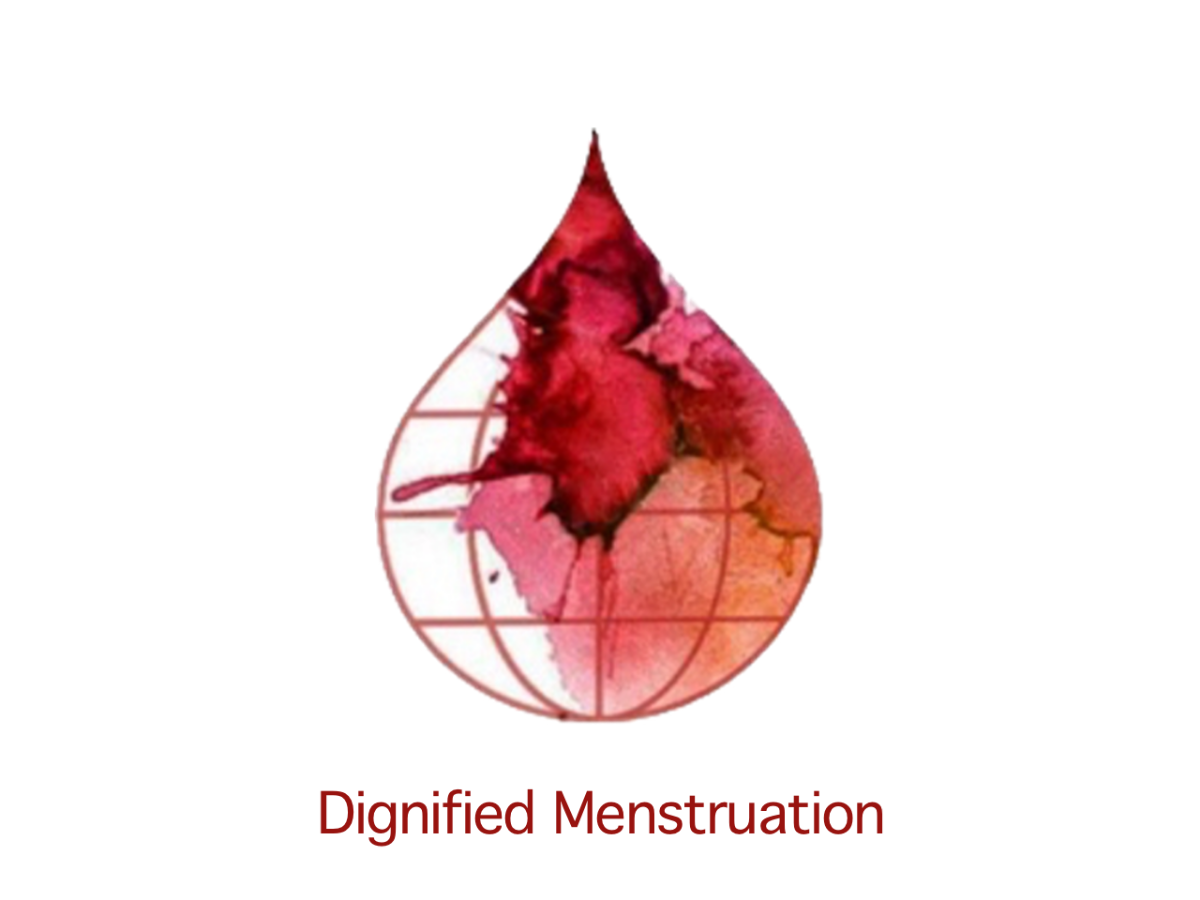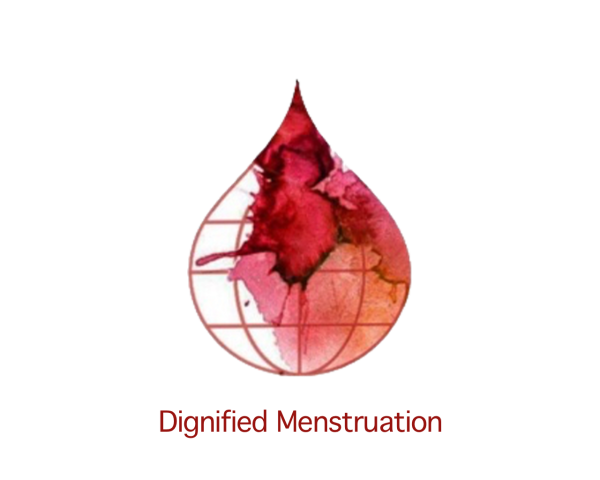Concept on Dignified Menstruation
The Relevancy and Urgency: 8th December, a Day for Dignified Menstruation

The Relevancy and Urgency: 8th December, a Day for Dignified Menstruation
Dignified Menstruation is a groundbreaking approach to assess the activities across all sectors for equality and justice. Simply, it is a solution for a long struggle and a journey for equality and justice for many of us. To know more about Dignified Menstruation, we need to unveil menstrual discrimination as the other side of Dignified Menstruation or as a problem.
Menstrual discrimination is an umbrella term that refers to a range of perceptions and practices around menstruation, including taboos, shyness, stigma, restrictions, abuses, violence, and deprivation from resources and services throughout the life cycle of menstruators. It is not a single act or event or period. Irrespective of education, region, or religion, it has been in practice all over the world in different names (5000 euphemisms), forms, and magnitudes. It is also not linear but complex and multifaceted. Menstrual discrimination plays a primary role in constructing and socializing the power relationship and reinforcement of the patriarchal practices. It starts from childhood and goes in a spiral way throughout the life cycle of both menstruators and non-menstruators and forms a vicious circle. According to the UN’s definition (1993), it is a form of sexual and gender-based violence (SGBV) and also fuels other forms of SGBV, including child marriage, to occur. One menstrual perception and practice may fall more than two types of SGBV’s. For instance, if a menstruator is not allowed to cook food in a kitchen because of menstruation, it is a form of physical and emotional violence as well as deprivation from resources and services as per the UN’s definition of SGBV. Likewise, it is a violation of human rights. In the above example, there are multiple forms of human rights, such as the right to dignity, the right to freedom, the right to equality, the right to food, the right to mobility, the right to health, etc., that are violated.
In the course of the human rights movement since 1948, the menstrual discrimination is missing. It is not considered a violation of human rights, though there are many international human rights instruments such as CEDAW 1979, the Beijing Platform for Action 1995, the Child Rights Convention 1989, SDG 2030, ILO C 190, etc. in place. The menstrual discrimination is not included while having conversations around sexual and reproductive health and rights (SRHR) campaigns. The anatomy and physiology of human reproductive organs or menstrual management is not able to unpack the menstrual discrimination. Even the Gender Equality and Social Inclusion (GESIs) policies have yet to acknowledge the complexity of menstrual discrimination and the effect of it in all the aspects of the lives primarily as determinants for power relationships and patriarchy.
Likewise, menstrual discrimination is missing in yearly celebrations globally, such as February 14: One Billion Rising, March 8: Women’s Day, April 7: World Health Day, May 1: Labour Day, May 28: Menstrual Hygiene Day, June 5: Environment Day, July 11: Population Day, September 21: Peace Day, September 28: Abortion Day, October 11: Girl Child Day; November 25-December: 16 Days of Activism, etc. These days are linked with the Dignified Menstruation directly and indirectly but are not dedicated to Dignified Menstruation as specific days. Many activists/scholars claim that the May 28 is enough to address all the forms of menstrual discrimination. Indeed, May 28 is Hygiene Day, which has two implications: i) it is primarily focused on menstrual management. It only addresses a few aspects of discriminatory menstrual practices and does not necessarily guarantee the dignity of menstruators; ii) the menstrual blood is pure and clean, so it should not be sanitized as we sanitize the hands after touching the patients or clients after vaccination or in family planning clinics. On the other hand, if we keep saying the menstrual hygiene, we are imposing the biased ideas psychologically that the menstrual blood is impure and dirty. Recently, a few organizations including GSCDM, started to mark the 28th of May as Menstrual Health Day. The definition of menstrual health is revised in 2021. However, it is primarily concerned with health issues related to menstruation and menopause. The social and cultural norms that are formed and shaped by menstrual discrimination have been the same or not been prioritized. Because of such a bunch of social and cultural norms associated with menstruation, discriminatory menstrual practices are being provoked. For instance, the reason access to quality menstrual pads is a problem is because menstruation is considered a dirty, impure, or unclean state of weakness, and menstruators are also considered as inferior, disadvantaged, or unimportant at home, school, community, workplace, parliament, and everywhere. Of course, there are many other factors of inequality and injustices. Menstrual discrimination is primary, whether that’s in the global north or global south.
For GCSDM, each moment is a dignified menstruation moment, and we wish for celebration every moment. Practically, it is not feasible. Therefore, by considering the menstrual discrimination as SGBV and a violation of human rights, the 8th of December is selected to mark as the dignified menstruation day. 8th December represents the 14th day of 16 days of activism and also represents the month of human rights, December. It emerged from the lived experience of a survivor of menstrual discrimination from the global south. In summary, the Dignified Menstruation is a Decolonized, Innovative, Holistic, Transformative, and Feminist human rights and life cycle approach for equality and justice in all aspects of life. This approach accelerates the inclusion because it divides the population on the basis of uterus like menstruator and non-menstruator, fosters the equal power relationship where the non-menstruators socialize with a sets of accountability and menstruators socialize with pride and power. It also helps to dismantle patriarchy. More importantly, it’s not confined to five days of bleeding only. In other words, it is the approach beyond menstrual products, WASH (Water, Sanitation, and Hygiene). It plays a crucial role in preventing SGBVs, including child marriage. And of course a boon for improving the SRHR and comprehensive sexual education as an entry point. The dignified menstruation-friendly home, school, and community allow enough space for bodily autonomy and making choices. Having and rejoicing in the Dignified Menstruation is all about the promotion of human rights. In short, Dignified Menstruation is an appeal to change the narrative around menstruation from hygiene to dignity and five days of bleeding to a life cycle approach.
GSCDM also likes to clarify that the initiation to mark the 8th of December as Dignified Menstruation Day is not in competition with any organization or individuals. It started from pain and struggles. Based on decades of long experience of working around women in peace and politics, prevention and response to SGBV through various organizations and capacities, the founder of GSCDM urges us to challenge our deeds and endeavor to fill the gap. Just 2 days before Human Rights Day, or the completion of the 16th day of activism, 8th December is just a combo to remind all stakeholders to embrace the menstruation, which is a means of our [human] existence. By this note, as a founder of GSCDM, I appeal to each one of you from all the corners of the world to advocate for dignified menstruation because the root of all of us is menstruation.


-1726033997.png)
-1725872110.png)